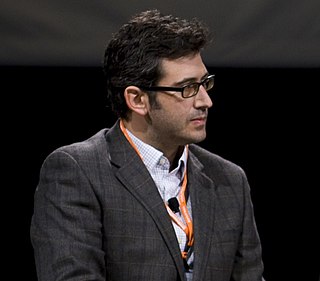Top 1200 Debt Crisis Quotes & Sayings
Explore popular Debt Crisis quotes.
Last updated on April 15, 2025.
Debt is a trap, especially student debt, which is enormous, far larger than credit card debt. It’s a trap for the rest of your life because the laws are designed so that you can’t get out of it. If a business, say, gets in too much debt it can declare bankruptcy, but individuals can almost never be relieved of student debt through bankruptcy.
he economy favors throughput over quality and craftsmanship, and economists are terrified because the American savings rate has crept upward from about zero to almost five percent. But the mortgage crisis and the burgeoning credit card crisis are causing Americans to become wary of irresponsible debt.
If we keep kicking the can down the road, if we follow the president's lead or if we pass the Senate budget, then we will have a debt crisis. Then everybody gets hurt. You know who gets hurt first and the worst in a debt crisis? The poor, the elderly. That's what we're trying to prevent from happening.
Debt, weve learned, is the match that lights the fire of every crisis. Every crisis has its own set of villains - pick your favorite: bankers, regulators, central bankers, politicians, overzealous consumers, credit rating agencies - but all require one similar ingredient to create a true crisis: too much leverage.
Shipping first time code is like going into debt. A little debt speeds development so long as it is paid back promptly with a rewrite. The danger occurs when the debt is not repaid. Every minute spent on not-quite-right code counts as interest on that debt. Entire engineering organizations can be brought to a standstill under the debt load of an unconsolidated implementation, object-oriented or otherwise.
Unless we are holding ourselves accountable day in, day out, not just when there's a crisis for folks who have power and influence and can hire lobbyists, but for the nurse, the teacher, the police officer, who, frankly, at the end of each month, they've got a little financial crisis going on. They're having to take out extra debt just to make their mortgage payments. We haven't been paying attention to them. And if you look at our tax policies in America, it's a classic example.
This debt crisis coming to our country. The wall and tidal wave of debt that is befalling our nation. Medicare and Social Security go bankrupt within ten years, we have a debt that is looming so high that in the last year of President Obama's budget just the interest payments on our debt is $916 billion dollars.
Debt, we've learned, is the match that lights the fire of every crisis. Every crisis has its own set of villains - pick your favorite: bankers, regulators, central bankers, politicians, overzealous consumers, credit rating agencies - but all require one similar ingredient to create a true crisis: too much leverage.
The environmental crisis is somber evidence of an insidious fraud hidden in the vaunted productivity and wealth of modern, technology-based society. This wealth has been gained by rapid short-term exploitation of the environmental system, but it has blindly accumulated a debt to nature-a debt so large and so pervasive that in the next generation it may, if unpaid, wipe out most of the wealth it has gained us.
The U.S. has a law on the books called the debt limit, but the name is misleading. The debt limit started in 1917 for the purpose of facilitating more national debt, not reducing it. It still serves that purpose. It's unconnected to spending, hurts our credit rating and has been an abject failure at limiting debt.
Debt is a trap, especially student debt, which is enormous, far larger than credit card debt. It's a trap for the rest of your life because the laws are designed so that you can't get out of it. If a business, say, gets in too much debt, it can declare bankruptcy, but individuals can almost never be relieved of student debt through bankruptcy.
The moment a large investor doesn't believe a government will pay back its debt when it says it will, a crisis of confidence could develop. Investors have scant patience for the years of good governance - politically fraught fiscal restructuring, austerity and debt rescheduling - it takes to defuse a sovereign-debt crisis.















































